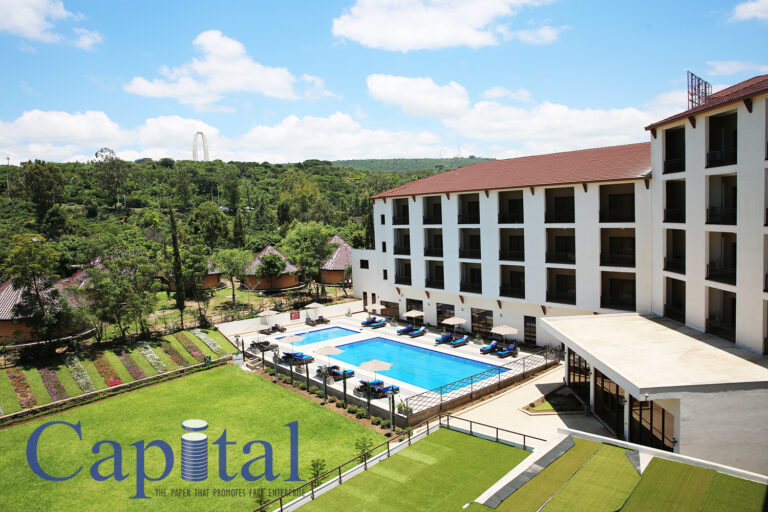The Ethiopian-German Energy Cooperation has introduced the innovation competition held on a virtual event.
The joint energy cooperation targets to enhance decentralized electrification, rehabilitation of existing large hydropower stations with the involvement of the private sector including from Germany and establishment of solar photovoltaic (PV) demonstrational centers in Ethiopia.
Ethiopian-German Energy Cooperation and innovation competition on ‘Decentralized Energy Solutions in Ethiopia’ launched on September 1 on a high-level virtual event with participants from the German and Ethiopian government and private sector as well as the scientific community that included Seleshi Bekele, Minister of Water, Irrigation and Energy (MoWIE).
The innovation competition is open to Ethiopian students, researchers and entrepreneurs who have business ideas for decentralized electrification approaches that demonstrate unique innovation in terms of feasibility and adaptation, scalability, replicability, affordability and sustainability.
The competition, which goes in hand with the National Electrification Plan (NEP), will seek to award its participants with an international recognition, besides giving an opportunity for contribution to the enhancement and modernization of the energy sector in Ethiopia.
According to the statement sent to Capital, the energy cooperation fosters commercial application of renewable energy technologies in Ethiopia.
GIZ’s renewable energy competition
Ethio Telecom slashes international call tariffs
Ethio telecom offered 50 percent discount on its international outgoing calls. According to the telecom service provider international outgoing calls to USA, Canada, UK, UAE, India, Germany, Saudi, China, Kenya, South Africa, and Australia are selected as beneficiary countries to the tariff discount.
To increase its customers Ethio Telecom also offered several new and revamped services, both local and international.
Last week Ethio telecom has disclosed tariff discount internet package by 35 percent, and voice call package tariff by 29 percent. Furthermore, it is cutting down mobile voice and data service charges by 28 percent, while discounting unlimited premium voice service charge by 21 percent, unlimited data package by 21 percent, and unlimited premium voice and data package services by 20 percent.
On premium plus unlimited package service, Ethio Telecom is making a 16 percent discount, and 61 percent discount on satellite services.
Ethio Telecom is also making a 59 percent discount on its “Stay at Home Package” till the end of 2020, a 53 percent discount on its “Adey Abeba Package”, the CEO said.
Ethio Telecom is the state-owned sole telecom services provider to Ethiopia’s 110+ million people. The Ethiopian government has recently been collecting bids to license two additional telecom services providers with significant discounts; such as the Stay Safe package to lessen COVID-19 impacts with up to 59 percent discount.
Ethio-Avaya, My Ethiotel Mobile App, Ethio e-Care, and a new website have been mentioned as ways in which Ethio Telecom strived to create more convenience for its customers.
In the last fiscal year ethio telecom has generated 47 billion birr revenue Ethio Telecom also aims to generate 55.55 billion birr revenue in 2020/21 the current fiscal year. In the closed fiscal year Ethio telecom announced that its total service subscribers have reached 46.2 million showing an increase of 5.8 percent from the previous period.
Ethio telecom has also planned to increase total subscribers by 13 percent to 51.12 million, Mobile Voice subscribers by 11.8 percent to 49.77 million, Data and Internet users by 16.5 percent to 27.47 million, Fixed Broadband subscribers by 215.3 percent to 669.4 thousand. This is expected to bring telecom penetration to 51.3 percent By engaging in new business streams and shifting revenue sources from traditional to value-added services and by offering 14 new and 21 revamped local and international products and services.
Despite grave challenges Haile inaugurates yet another hotel
Haile Gebreselassie, the prominent athlete and businessman, calls the government to compensate the damages that destroyed his Hotel in Shashemene after the instability following the killing of the singer Hachalu Hundessa.
He made the statement while inaugurating its seventh chain of Haile Hotels and Resorts Group at Adama, 80km southeast of Addis Ababa.
At the press conference held during a media visit at the new five star hotel at Adama, Haile, a double Olympic Gold Medalist, said that the responsibility to cover the damage at Shashemene is the government.

“We invested in the country because we thought there is rule of law in the country due to that the government is responsible to the damages that occurred last June,” he said.
According to the Haile Hospitality Group that has more than 1,500 employees, the investment destroyed at Shashemene and Batu is about 295 million birr.
“Such kinds of damages are mostly covered by the government, which we don’t prefer but we don’t have any option,” he said.
“There is no such kind of insurance coverage and I will not get any insurance in the future for such kind of distraction. It is the responsibility of the government to keep the safety of lives and properties,” he added.
He said that currently his company is working to revamp the Batu Hotel to return back to operation, while the Shashemene facility that was vandalized and destroyed could not become functional easily.

Haile Hotels and Resorts Group starts the hospitality business a decade ago when it opened a hotel in the lake side of Hawassa town and now it operates seven facilities and three more will join in the near future. Recently it has also announced that it will invest one billion birr at Gorgora, the northern coast of Lake Tana, to add more chain.
The facility that was opened a few weeks ago at Adama consumed 400 million birr and lies on 1.2 hectare. The new hotel creates 300 jobs and has 110 guest rooms, 2 bars, 2 restaurants, swimming pool, fitness center, spa, seven conference rooms and children play ground.
The deep-rooted challenge of lake weeds
The rainy season bring with it challenges to hydropower plants. Lake Weed commonly referred to as Enboch, buoyant grass and lack of spare parts are resulting in power interruptions.
Last week, Ethiopian Electric Power had disclosed that Awash 1 and 2 hydro power plants had stopped operations because of ‘Enboch’ and high waters. Apart from Awash according to EEP, Tana Beles hydro power plant is also facing the same fate.
According to the Ethiopian electric power, the spread of water hyacinth which is commonly known as Enboch on Lake Tana is also presenting a challenge to Tana Beles – the second largest hydro-electric power plant in the country with an installed capacity of 460 MW.
As the office disclosed the problem needs an immediate solution and if not properly tackled the hydro-electric plant would stop its operation. As a result of this, Tana Beles had been temporarily closed for three days from August 16-18.
“Even if the power plant has Taff boom-which is an equipment that offers protection during operation from buoyant grass, the increasing average of the grass is making the situation difficult.
Beles hydroelectric power plant is located on Lake Tana which has been affected by ‘Enboch’ for about ten years. Beside the effect brought about the buoyant grass, Enboch, is also adding more risk to the power plant. According to Moges Mekonnen, PR of Ethiopian electric power, describes the situation as daunting. This is because when trials are made to control the spread of one side of the lake, the weed begins to sprout on the other end and their spread are propagated by wind and storm. 
As Moges informed capital to control the spread and the effects on the plant there are activities such as leasing boats to prune the weed. However for sustainable solution he suggested that the activity should be strengthened in terms of the efforts made to control the spread.
The COVID-19 pandemic has further added fuel to the fire since human labor was required to reduce the infestation of Water Hyacinth on Lake Tana.
Starting from 2011 the lake has been affected by the infestation which is the most dangerous weed affecting lakes around the world.
This deep-rooted issue actually started in 2011, and infestation has continued its spread since. Hyacinth is the most dangerous weed affecting lakes around the world to date.
On September 2019 the government formed an agency tasked with the protection and development of water resources to control the spread of the weed. Three methods being used to control the spread of the weed are; using chemicals, using biological means, and lastly is removing it physically by using both machines and human resource. Despite these efforts, the infestation has persisted and even got worse. 
The infestation still poses a serious threat to the lake, the surrounding community, and the Nile basin.
Enboch directly threatens both the lake and its inhabitants. It deprives aquatic plants and animals of sunlight and oxygen. It also restricts water flow and is an obstacle to all kinds of economic activities including fishing, navigation, power generation and irrigation.






